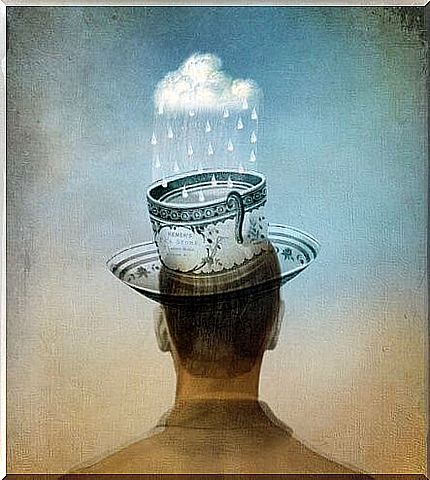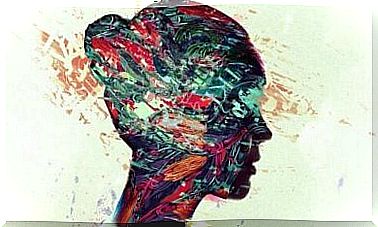Confronting My Own Thoughts

The Socratic method is a teaching method in which one questions one’s own thoughts and beliefs. The goal is to replace unrealistic ideas with others that are better adapted to reality. It is strongly supported as an effective tool in cognitive psychology, with evidence based on more than 2,000 scientific studies.
Behind an exaggerated emotional state there is always an exaggerated and false thought that causes it. Events do not determine our emotions. There is always the intermediate step of cognition. That’s where we have some control.
Where does the idea of confronting our own thoughts come from?
It was the philosopher Socrates who began to debate with his Athenian colleagues after a visit to the Oracle at Delphi. That’s why this method, which is dominated by dialogue, is named after him.
Socrates tried, by means of logical questions, to find the truth of the arguments of his colleagues and thereby decide whether they were reasonable and logical or not. If they didn’t make sense, there would come a point in the debate where the speaker would contradict himself. After such a point, he would inevitably have to accept the other, more logical and rational point of view.

The importance of learning to reason
People tend to think irrationally, wrongly and in an exaggerated way. It is true that certain negative thoughts can often help us protect ourselves from danger, seek help, or cope with certain difficult situations, but at other times those thoughts are so disproportionate to reality that they do not help and hinder us instead. They make us act against our better judgment and distract us from our goals.
In therapy, the Socratic method teaches patients to be their own self-interrogator. They learn to discuss their own thoughts and interpretations until they come to the conclusion that they must reject illogical thoughts and replace them with other, healthier ones. These healthier thoughts can lead to healthier and more peaceful emotions.
How do you perform the Socratic method?
As indicated above, confronting and questioning our own interpretations of reality means questioning ourselves, to find out whether what we think makes sense or not. We have to decide whether our thoughts correspond to reality or whether we become victims of our own thoughts or mental filters.
We must keep in mind that we perceive reality through our five senses and only those we must trust. For example, if my thought is “it’s raining”, I have to prove to myself that this is true. To do this, I need to ask myself some questions:
- What proof do I have that this thought is true? For the above example, the evidence could be that the streets are wet and that water is falling from the sky or that people are using umbrellas. These are concrete examples of irrefutable evidence.
- What evidence do I have that this thought is false? Here we can say that there is no evidence against the fact that it is raining, given that we have found so much in favor of the truth and nothing that tells us that it is not actually raining.
- Are there other possible interpretations? No, in the case of our example, everything tells us that it is indeed raining.
With these important questions, we can prove that our thought is realistic, logical, and reasonable. But what happens to other thoughts that are more negative and irrational, such as “I’m worthless”, “This shouldn’t have happened to me” or “My life will never make sense again”?
Reasoning with thoughts like a scientist
Even in confronting these dark thoughts, the reasoning process is the same: we must confront these ideas with reality. We have to ask ourselves the same questions until we can verify whether the thought is true or not, just as a scientist would with a hypothesis.

Therefore, patients learning the Socratic method must look for arguments that refute all those mental processes and show that those negative thoughts are false and exaggerated. So, when we confront the thought “My life will never make sense again”, we must ask ourselves:
- What proof do I have that this is really true? I lost something that was very important to me.
- What evidence do I have that this thought is false? I can’t be sure if my life will make sense again or not. Therefore, the assumption that it will never make sense again prejudges the actual events of my life. On the other hand, the fact that I have lost something important in my life does not mean that my life has no meaning at all. I have many other things that still have meaning and that I can still enjoy.
- Are there other possible interpretations? Yes, my life has been hit by a major setback, but that doesn’t mean it has lost all meaning. I have no evidence to show that a loss entails immediate loss of vital significance. This is annoying, but not terrible.
Ask yourself questions to know yourself
There are many questions destined to prove the empirical validity of some negative thoughts. Some of these questions explore the arguments like the ones we just saw. Others are destined to prove the usefulness of the thought. Finally, there are other questions that are meant to check if what we think is actually true and as serious as we believe.
The more questions we ask ourselves, the better. The goal is to convince ourselves that we are actually exaggerating our situation, making ourselves worry about nothing or saying something is terrible when in reality it is unfortunate but bearable.
When a person practices and practices this Socratic dialogue daily, he can become an expert. He can learn to interpret the world in a healthier and more rational way. By confronting that internal negativity, he can create calmer and healthier emotions. These, in turn, allow the person to confront their problems in a much more rational and calm way. It is essential to persist in this method until it becomes automatic.









